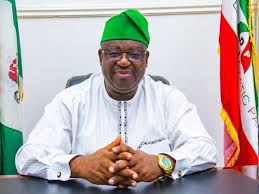In a scathing critique of Plateau State Governor Caleb Mutfwang’s handling of recent violence, former Aviation Minister Femi Fani-Kayode has demanded urgent tactical overhauls to address escalating insecurity. The rebuke follows coordinated attacks in Bassa and Bokkos LGAs that claimed over 130 lives, with Fani-Kayode alleging foreign-backed plots to destabilize Nigeria ahead of the 2027 elections.
Foreign Infiltration Allegations
Fani-Kayode asserts that “bloodthirsty barbarians” from North Africa and the Sahel—allegedly sponsored by Western and Middle Eastern interests—are executing ethnic cleansing to divide Nigeria along religious and regional lines. He draws parallels to pre-2015 election violence, warning that renewed chaos seeks to undermine President Tinubu’s administration and manipulate the 2027 polls.
Governor Mutfwang Under Fire
The former minister condemns Mutfwang’s “weakness” and “political correctness,” urging immediate border closures akin to Donald Trump’s U.S. immigration policies. He challenges the governor to abandon diplomatic niceties, deploy military-grade strategies against attackers, and publicly unmask suspected foreign collaborators. Notably, Fani-Kayode questions Mutfwang’s moral standing as a Christian leader tolerating “mass murder”, while also condemning retaliatory lynching of innocent citizens.
Prescriptions for Survival
Fani-Kayode’s blueprint includes:
Border militarization to block terrorist inflows
Mass elimination of apprehended attackers
Intelligence partnerships with global allies to expose sponsors
Psychological warfare through public naming of foreign entities allegedly fueling crises
The commentary concludes with a rallying cry for national unity, urging Christians and Muslims to jointly resist “enemies of peace”. However, the analysis conspicuously avoids addressing the Plateau government’s documented security collaborations with federal agencies or its humanitarian relief efforts for displaced communities.
This intervention spotlights Nigeria’s fragile security architecture ahead of the 2027 elections, framing Mutfwang’s governance as a litmus test for Tinubu’s broader crisis management capabilities
